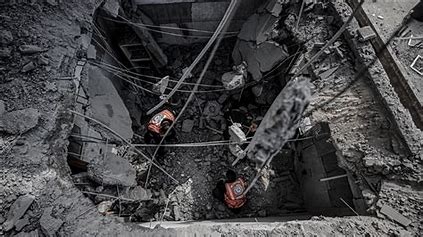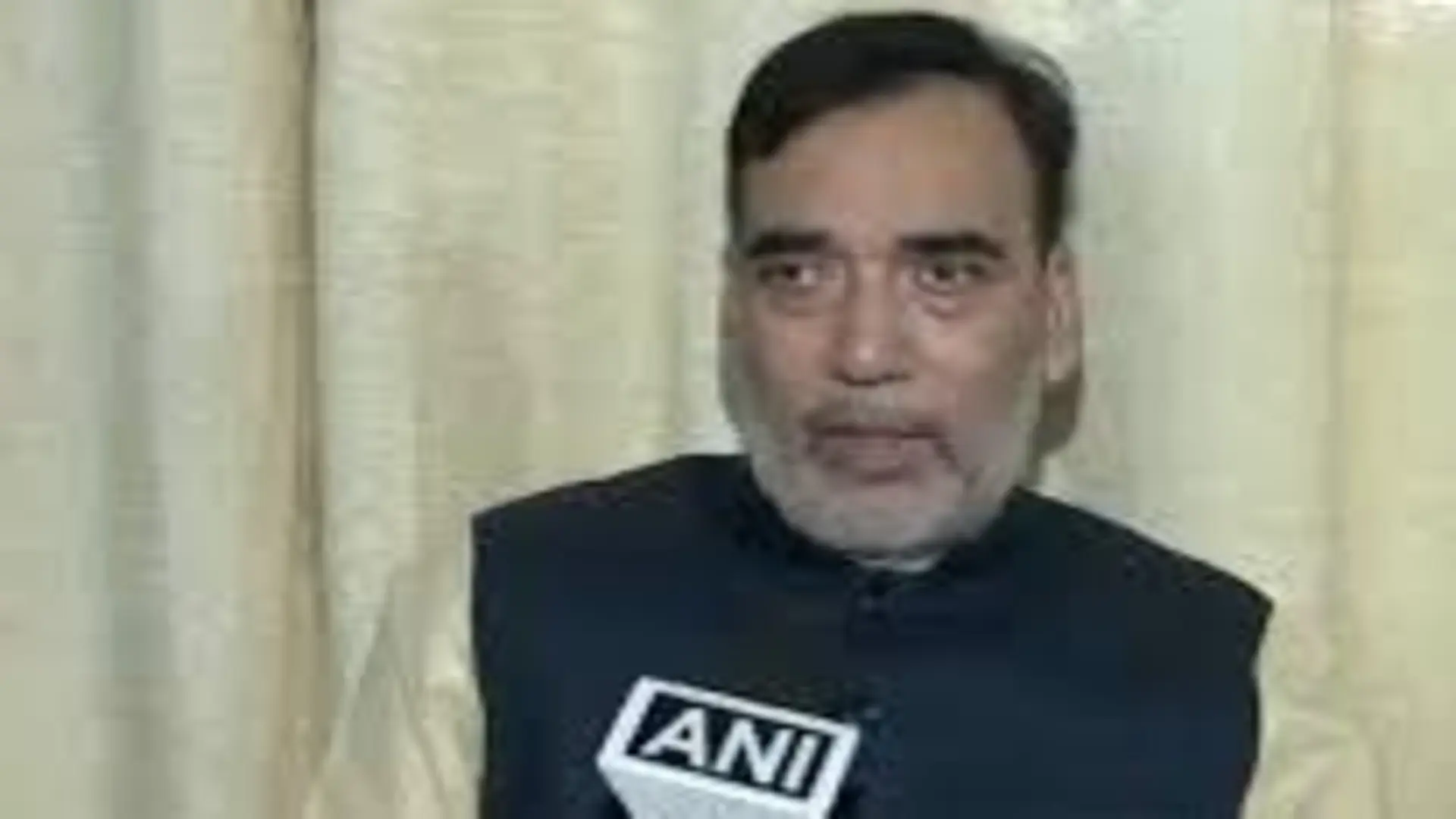
New York-based forensics research firm rocked the boat of the famous Indian business magnate. The businessman was left whirling after a report by the research firm suspected of decades of shameless stock osteopathy and accounting scam that amounted to the largest con in the history of corporate world. Yes, Gautam Adani, capitalist and the Chairman of Adani Group has been in a land of agony from the time when a report by Hindenburg Research dripped on January 24, 2023. However, India’s biggest conglomerate with welfare across ports, airports, manufacturing, and energy, Adani Group rejects the accusations and has threatened legal action against Hindenburg.
Even so, the accusations rubbed around 120 billion dollars in market value from Adani’s business empire as well as more than 50 billion dollars from founder and chairman Gautam Adani’s fortune. It is the most awful financial setback ever undergone by an Asian billionaire and knocked him from the global rich list. Adani flip-flops from the world’s top 20 wealthiest list as the sell-off endures.
Modi’s Rockefeller
Adani and Modi both are natives of Gujarat, where Modi was Chief Minister before he was chosen as the country’s leader in 2014. During his governance, Gujarat’s economy underwent its speediest GDP growth, overshadowing other Indian states—an accomplishment that was labelled the “Gujarat model,” and which many Indian voters wished Modi would imitate across India. As Modi scaled through the political positions, he also openly exhibited an intimate friendship with Adani.
The pair are known to be close associates since the 1990s. Modi used a private jet belonging to the Adani Group during his successful prime ministerial campaign in 2014 and again when he went from Gujarat to New Delhi to take office as Prime Minister. Since that time, Adani’s wealth has increased from an assessed $7 billion to $120 billion. Much of this rise is attributed to the Indian government’s multitude of privatization drives and business-friendly strategies, which saw Adani triumphing in numerous offers of the government and infrastructure projects in airports, roads, railways, ports, fossil fuels, and green energy across India. Modi has called this tactic “nation-building.”
In the year 2018, a polemic choice by the Indian government permitted Adani to bid and win tenders for six airports. Though Adani had no previous knowledge of operating airports, the choice turned his group into one of the nation’s largest private airport operators overnight. The action was profitable for Adani Group but it was also met with annoyance. In the state of Kerala, where Adani won a 50-year lease to manage the Trivandrum International Airport, the state’s finance minister called the decision an “act of brazen cronyism.”
India’s reputation is the real victim
The Hindenburg report says that issues of corruption permeate manifold levels of the government, particularly calling out the Securities and Exchange Board of India (SEBI). This may substantiate the most destructive factor, weakening investor confidence in India’s $3.2 trillion economy. Although Adani has said that several specific allegations within the Hindenburg report had previously been probed and cleared by Indian courts of law, the continued market fall is symptomatic of an absence of investor hope in the nation’s institutions. This has generated a mega risk now, not only for the Adani Group but for the whole Indian market. Hindenburg’s open statement mentioning that India’s regulator is guarding the culprits rather than punishing them may prove quite disastrous. Moreover, the stock market by penalizing the share prices has taken cognizance of the charges.
How harmful the Adani hullabaloo may be to India’s state finances is strongly considered. Shares of India’s banks and the Life Insurance Corporation of India plunged drastically. A leader of the opposition Congress Party, Jairam Ramesh, has underlined how state-owned banks have advanced double as much to the Adani Group as private banks and how this recklessness has endangered them to monetary risk. The activist lawyer, Prashant Bhushan tweeted that we must carefully trace all public sector banks and undertakings investing in Adani Group and the Chairmen and Directors of these must be held to account for putting our money at risk.
Hindenburg’s claims have, also fundamentally elevated questions about the supervisory efficacy and responsibility of Indian institutions, which generally attract foreign investment in India over its neighbour, China. Furthermore, many Indians have the sense to fear that the extensive investments made by the government into Adani’s companies could damage the country’s infrastructure. Their questions s such as can they build the roads they have promised, improve the ports they have been given, and maintain the airports they won in a bid? etc., remain unanswered.
And with the Hindenburg report’s analysis, the bets placed on Adani and other Indian capitalists may be failing. Since the beginning of 2023, the net worth of fellow Indian billionaires Mukesh Ambani, Radhakishan Damani, and Savitri Jindal have all declined due to falling share prices. Hence, it is a gigantic test of Adani’s claim that “no one will be able to stop India’s position in the world today, or in the next 20 to 30 years.”
SEBI should bark before the thief leaves
In July 2021, a few policymakers pursued an inquiry into the Adani group’s source of funds and assets after some accusations were made against it, because the group possesses stakes in strategic Indian infrastructure like ports, airports, and power plants and it was therefore a topic of national significance. Pankaj Chaudhary, junior finance minister of India had said that neither the funds nor Adani firms were being investigated, but some entities of the group were being inspected by the SEBI. Though the minister revealed the names of people registered as accountable for each of the funds, precious little seems to have been done by the regulators, despite 18 months have gone by since then.
Undeniably, it’s not just in this specific case that SEBI has been found defective. Not only is it lethargic in its detection but it has always been found to be responding to happenings rather than anticipating them. IL&FS is a case in the point, where the SEBI could not discover what was going on. Nor did it cover itself with glory in the co-location NSE case. It let the exchange off with scarcely a slap on the wrist despite a supposedly deliberate case of wrongdoing and evidence tinkering. A court had at the time indicated that SEBI had been sluggish to respond.
Certainly, the SEBI alone is not accountable. As the chairperson Madhabi Puri Buch had mentioned in December 2022, although there is compliance with the letter of law is in place, compliance with the spirit of the law is not happening. Those units who are presumed to be unbiased, such as auditors, independent directors, bankers, and other stakeholders also must guarantee due diligence but are all too often found absent in this respect. Stakeholders like external auditors and independent directors are the first line of defense who unfortunately often do not bother to ask the tough questions. But as the regulator, the burden is on SEBI to take prompt corrective action.
In the case of the Adani group companies, the stocks of many of these companies had run up very abruptly, an indicator that there could have been a liquidity crush in the group’s stocks. Actually, most of the mutual funds choose to invest a very small amount in the group’s stocks, because of these reasons. But despite the runup in stock prices, the regulator did not raise any questions.
Unfortunately, the SEBI wakes up only when stock prices start collapsing and retail investors start complaining but remains quiet when companies are raising funds at brutal valuations, as we saw in the case of new-age companies. If systems were in place to nip such doings in the bud, several market crashes could have been prohibited.
The broader concern is that the whole market has to pay for the suspected misdeeds of a few companies and the careless attitude of the market regulator. The cascading consequence of such collapse is widespread. This time it is all the more serious, as questions have been raised about the lending activities of some banks. Doubts and fears of infection have affected bank stocks. It’s time SEBI gets its act in the place and gets all stakeholders to take their role as watchdogs seriously. It also needs to start barking when it smells a controversy, rather than wake up after the entire neighbourhood is robbed.
The writer is a tax specialist, financial adviser, guest faculty and public speaker based in Goa. He can be reached at panditgoa@gmail.com or 9822983420















